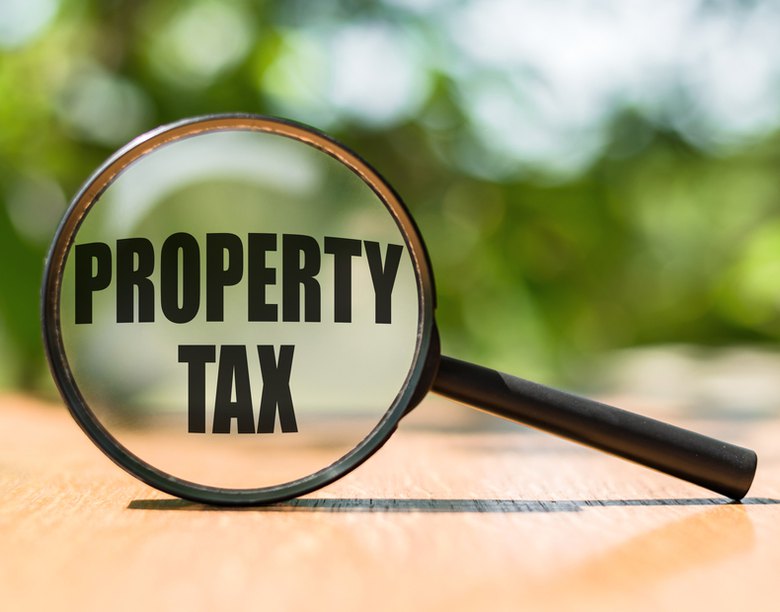What Is Property Tax In Texas, Why We Pay It & How Does It Work?
Let’s explore what is property tax, why we pay it, and how it works in Texas. Here, we’ll help you understand the basics of property tax and how it affects homeowners and real estate investors.

Property tax is a tax that homeowners pay on their property (including personal property) – the amount, by law, is based on the value of the property. Homeowners in Texas may have to provide tax certificates as proof of taxes as per Texas property tax rates when they sell their properties.
This certificate shows that all taxes have been paid up-to-date and that there are no delinquent property taxes. What is delinquent property taxes, you may ask – that’s the unpaid amount, to which a 10% fine is also added.
Property tax payments support local services and infrastructure, including schools, police and fire departments, and public works. Let’s take a look at the basics of property tax in Texas, including how it works, what factors affect property tax rates, how it impacts residential/commercial property owners, and how real estate taxes vs property taxes compare with one another.

How Does Property Tax Work? Let’s Explore!
Now that you understand “what is property taxes,” let’s dive deeper into how it works.
Property tax in Texas is determined by local taxing units, such as school districts, cities, and counties. The tax (high or low) is assessed on real property, including land, buildings, and any improvements made to the property.
The amount of property tax owed is calculated based on the value of the concerned property, which is determined by the local appraisal district. Property owners in Texas have the right to appeal the appraised value of their property and can potentially reduce their property tax liability.
Wondering when are property taxes due in Texas?
The property tax is due on January 31st of each year.
Also, in case you were Googling “are property taxes included in the mortgage,” we’ll save you some time here – the answer is yes.
Hopefully, this answers the “How does property tax work in Texas?”
What Are Personal Property Examples?
Personal property is any movable possession (not necessarily expensive) that is not attached to land or buildings.
Common examples of personal property include:
- Furniture
- Jewelry
- Electronics
- Artwork
- Vehicles
- Pets
- Clothing
- Musical instruments
And so on…
Essentially, any tangible item that can be owned and is not considered real estate falls under the category of personal property. These items can be subject to personal property tax, which is a tax on the value of the possessions.
What Are The Different Types Of Taxes? Let’s Take A Look!
There are many different types of taxes that individuals and businesses may be subject to, such as:
- Income tax: A tax on the income earned by individuals and businesses.
- Sales tax: A tax on goods and services purchased by consumers.
- Property tax: A tax on real estate and other forms of property.
- Estate tax: A tax imposed on the transfer of property after someone dies.
- Excise tax: A tax on specific goods like tobacco, alcohol, gasoline, etc.
- Payroll tax: A tax that employers withhold from employees' paychecks to fund social security, Medicare, and other benefits.
- Corporate tax: A tax on the profits earned by corporations.
- Capital gains tax: A tax on the capital gains earned from selling assets like stocks, bonds, or real estate.
- Inheritance tax: A tax on the inheritance received by heirs after someone dies.
All types of taxes can vary depending on the country, state, or local governments.
If you’re wondering “What is the real estate tax,” jump over to the following section.
Real Estate Taxes VS Property Taxes – A Brief Comparison
Although the two are often referred to interchangeably, real estate tax vs property tax can have different meanings.
As with all the different types of tax, real estate taxes are named after the asset to which they apply – real property, such as land, buildings, and any improvements on the land. Property taxes, or more specifically, personal property taxes, in contrast, are payable for possessions like cars, boats, and furniture.
Another difference to point out in this property taxes vs real estate taxes comparison is that real estate taxes are assessed by the local government, while property taxes are assessed by the state government and are based on the value of the personal property.
Please note that property taxes may also include real estate taxes, depending on how they are assessed in a particular state.
Hopefully, this answers the “What is the difference between real estate taxes and property taxes,” we’ll discuss “how to calculate property tax in Texas” shortly!
Why Do We Pay Taxes?
Now that we’ve explored “How does property tax work” and the real estate taxes vs personal property taxes comparison, let’s take a look at why we pay them.
After all, who likes to pay taxes?
We pay taxes, like property taxes, to fund the government's programs and services, including:
- Infrastructure development
- Healthcare
- Education
- Defense
The revenue generated from taxes helps fund the salaries of government employees, the maintenance of public facilities, and the provision of social welfare programs. Taxes also allow the government to regulate and influence the economy by promoting certain behaviors, such as investment and saving.
Wondering “What happens if you don't pay property taxes?”
Without taxes, the government would not be able to function and provide essential services to its citizens – imagine if all of the aforementioned suddenly disappeared!
How To Calculate Property Tax In Texas – A Short Overview
To calculate personal property tax in Texas, you need to know the appraised value of your property, the tax rate for the jurisdiction where the property is located, and any exemptions that apply to the property.
The appraised value of the property is determined by the county appraisal district, which assesses the value of the property each year. The property tax rate varies by jurisdiction and is set by local government entities such as school districts, cities, and counties.
Next, you just multiply the appraised value of the property by the property tax rate for the jurisdiction and then subtract any exemptions that apply – property tax calculated, well done!
For example, if a property has a taxable value of $200,000 and the property tax rate in the area is 2.5%, then the annual property tax would be $5,000.
Tax rates can vary by county and even by city within a county. Additionally, exemptions and deductions may be available to property owners that can reduce their property tax bill.
Bottom Line
Knowing in principle “what is personal property taxes” and calculating what you owe to the government are not the same. Understanding property tax in Texas can be overwhelming, but you must comply with the state's regulations to avoid penalties and legal issues.
CertSimple USA, LLC has got you covered! We offer the fastest turnaround times, a 100% accuracy guarantee (including for property tax relief bill in Texas), and live customer service and support to make the process stress-free and efficient.
Our "Live Time" data ensures that you always have the most current information. With our family-owned company on your side, you can rest assured that we'll extend our "family vibe" to you, making things all the more convenient.
Contact us today to avoid burdening your mind – let CertSimple do the complex paperwork for you!